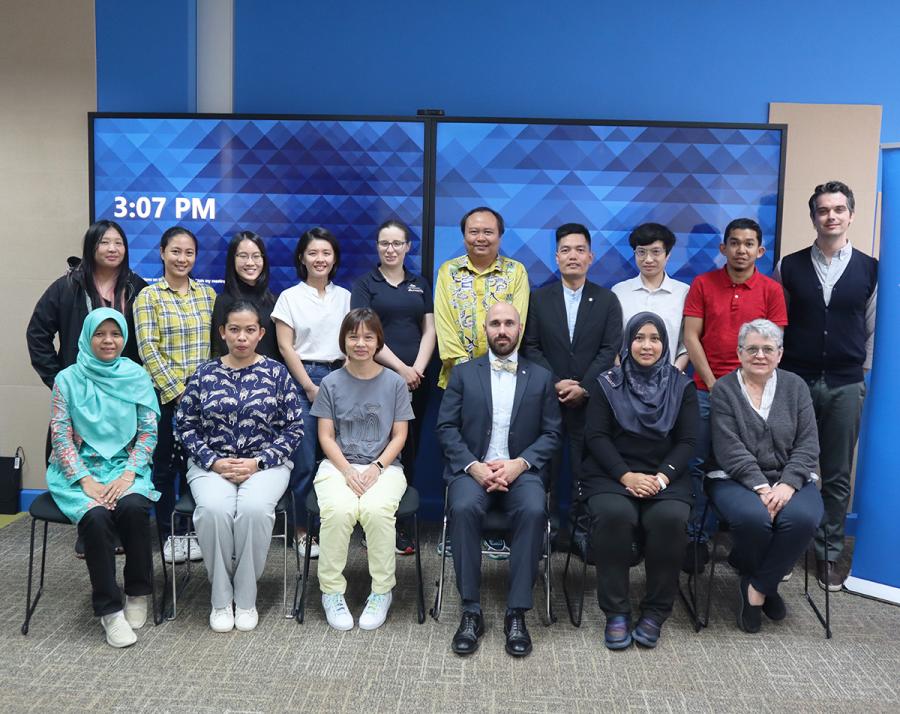ANSTO has for the third time hosted the International Atomic Energy Agency's (IAEA) Practical Introduction to Nuclear Forensics Regional Training Course for representatives of IAEA Member States from South-East Asia, sharing expertise on the theoretical and practical aspects of nuclear forensics.

Nuclear forensics is the examination of nuclear or other radioactive material, or of evidence that is contaminated with radionuclides, in the context of legal proceedings under international or national law related to nuclear security. It may be applied as part of a response to an incident in which nuclear or other radioactive material is found outside of regulatory control, along with other forensic and investigative techniques.
"In this course, we give the technical experts from the respective Member States an opportunity to see how ANSTO undertakes nuclear forensics so they can then take the information and the knowledge back to their countries and apply it there," said Gary Eppich, Nuclear Security Officer at the IAEA's Division of Nuclear Security, and the Scientific Secretary for this course.
"The participants usually have a lot of experience using analytical techniques but may not be experts in nuclear forensics."
The five-day program included lectures, hands-on laboratory work and a table-top exercise. Nuclear forensic examinations may include the analysis of the isotopic, chemical and physical characteristics of nuclear or other radioactive materials. The classroom components build knowledge that can be used in the practical exercises, which give participants experience with specialist techniques, such as alpha spectrometry and gamma spectroscopy, for example, and how they can be used in nuclear forensics.
"Hosting this course is an exciting opportunity to work directly with our regional technical counterparts to develop nuclear forensic capability, which supports nuclear security in South-East Asia," said Kaitlyn Toole, a nuclear forensic scientist at ANSTO and director of the training course.
"Importantly, participants learn how plan examinations which will address investigative questions, then turn data resulting from those examinations into information which will be useful to an investigation."
An expert from the Department of Energy in the United States supervised the table-top exercise. An Australian Federal Police (AFP) member, part of a cohort of AFP forensic experts trained to undertake examinations in ANSTO's facilities of forensic evidence contaminated with radionuclides, delivered a practical fingerprinting activity.
"Delivering this course would not be possible without the expertise and commitment of a team drawn from across ANSTO who generously share their technical knowledge or provide invaluable logistical support," said Toole.
ANSTO has almost two decades of experience in nuclear forensics and a dedicated laboratory. The organisation has a longstanding commitment to supporting the IAEA's nuclear forensics activities by engaging in Coordinated Research Projects, providing subject matter experts as training facilitators, attending IAEA conferences, and participating in scientific advisories and consultations.
ANSTO CEO Shaun Jenkinson, who welcomed delegates from countries across the Asia Pacific region to the Lucas Heights campus at the start of the course, said it was part of ANSTO's mandate to provide access to specialist capabilities in nuclear techniques, such as nuclear forensics, with counterparts in the region. "The training builds capacity to enhance nuclear security in the member countries of participants and in the region generally," he said.
The IAEA and ANSTO have a steadfast partnership in implementing the nuclear security programme in South East Asia, including capacity building in the region by hosting nuclear security training courses, like this one in Nuclear Forensics.






